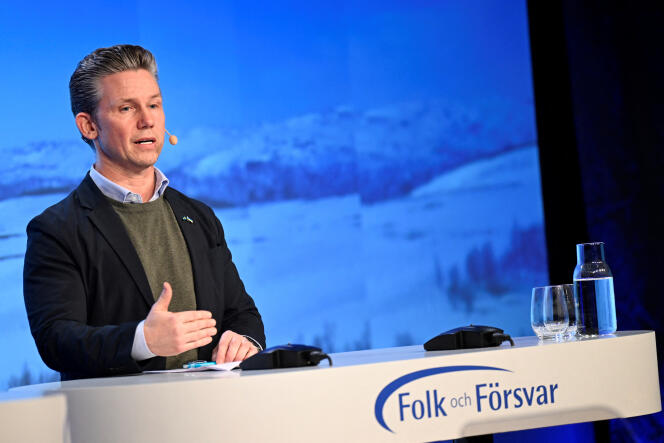


Le Monde interviewed Pal Jonson, Sweden's defense minister since October 2022 under the conservative government led by Ulf Kristersson. On January 30, as his country moves closer to integration into the North Atlantic Treaty Organization (NATO), he will meet in Stockholm with his French counterpart, Sébastien Lecornu, who will accompany Emmanuel Macron on his state visit to Sweden.
We obviously welcome this decision. Only Hungary will then remain. I would like to remind you that the Hungarians have declared that they will not be the last to ratify Sweden's application and that Hungary, like the other 30 NATO member states, has given us the status of an invited country and said that Sweden will become a member. From our point of view, it's important that this happens as soon as possible for our own security, but also so that we can contribute to strengthening NATO's common security.
We have been NATO's closest partner for a very long time. We have experience of working together in Afghanistan and Kosovo, as well as in Libya, where we sent Gripen aircraft. We train and conduct exercises together. So we already have very good military interoperability with NATO. But full political and military integration will take some time. For the past year and a half, we have been working on planning NATO's common defense and the resources we will be able to contribute to it. We've never worked like this before. It's also a question of identity: this is the biggest change in Swedish defense policy for two hundred years. It means that we have to make a conscious decision to stop defending Sweden in Sweden only but rather with our allies, within NATO.
Indeed, we could contribute to NATO's forward military presence in the Baltic states. We would send a reduced battalion to Latvia in the first half of 2025, in rotation with Denmark, under Canadian command.
We are naturally prepared for this. I would like to remind you that Sweden is an independent country that makes its own decisions on security and defense policy and that Russia has no right to veto these choices. That said, Russia has been imposing on us and other European countries various types of hybrid operations, including disinformation, propaganda, cyber-espionage and cyber-attacks. We strive to strengthen our resistance capacity as well as the resilience of society, within the framework of total defense.
You have 60% of this article left to read. The rest is for subscribers only.
